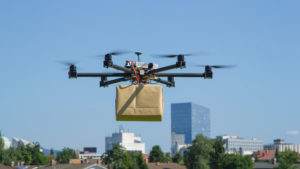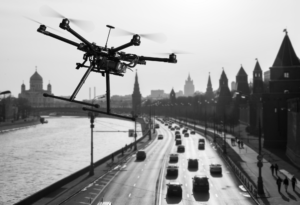This is part 2 of a four-part series, on drones and their liability implications, shining light on the insurance market, how to navigate the noise, and ensure that your operation is covered for the appropriate risks. Part two focuses on the importance of knowing your drone insurance underwriter.
See Part one here.
Last week, we discussed the Liability risk associated with drone operations, and discussed an important distinction between General Public Liability, and how this does not respond in the face of aviation-related exposure. This week, we’re going to shift gears towards the expertise required to underwrite drone insurance, and explore the right questions to ask to get to the bottom of what’s necessary when taking out drone insurance.
How to navigate the noise, and get the right insurance for your business: know your underwriter
Being one of the most specialised and regulated industries in the world, Aviation law, and by necessity, Aviation Insurance, is extremely explicit. Drones are aircraft, and thus are subject to the same laws. Paired with the fact that drones are new, innovative and growing exponentially, getting coverage for a drone or fleet of drones remains a novel concept, requiring a depth of understanding that is not entirely ubiquitous in the drone or the insurance industry.
As a fundamentally new technology, drones are continually developing and taking on a life-form of their own. In much the same manner, regulatory and legislative environments are continuously evolving to meet the uptake of new pilots and aircraft hitting the skies. For this reason, underwriters and insurance companies need to be across the industry, connected to developments and able to provide clarity to new and existing operators.
Here are some key points to consider when seeking an underwriter for your drone insurance:
An underwriter with a working knowledge of the industry
The role of an underwriter is to assess the risk of a given operation, and to provide coverage for that risk in a fair contract between insurance company and operator. In order to accurately assess risk in such a new and expanding industry, it’s important that the underwriter has a working, updated knowledge of drones and how they are used commercially. An underwriter with this knowledge can better understand individual circumstances, collect better data on drone operators, and is empowered to make better decisions on the back of this data.
An underwriter who can provide clarity over what’s necessary and what isn’t, and why
Another key element of underwriting is to provide clarity about regulation, legislation and technology, and to provide coverage that protects against it specifically. An example of a failure of this point is in providing general public liability to cover drone operations. Unfortunately with the rise of drones within larger corporate operations, there has been instances of drone endorsements on public liability policies. Whilst this appears to protect the business, any aviation or drone underwriter worth their grain of salt understands that most public liability policies do not cover aviation exposure, and thus leaves operators exposed. In the search for finding a drone insurance contract with comprehensive coverage, it is important that your underwriter understands the technology that they are dealing with, and can provide clarity over what is necessary and what isn’t, and explain why.
An underwriter who work specifically with you, to help create the best unique solution
Bringing together the fundamental idea of underwriting is bridging the gap between insurance company and operator, and working with the operator to find the best unique solution for them. Effectively, does the underwriter care enough to dig deeper, to understand what your business does, specifically. Do you own a consulting company that uses drones for one unique insight? Great, the underwriter should be able to explain that drones are an aircraft, and the drone part of the operation should include Aviation Third-party Liability. The underwriter should explain that Public Indemnity Insurance necessary for consulting is generally separate from aviation due to the nature of the legislation. Do you handle the insurances for a mapping company? The underwriter should be able to explain to you the types of coverage available, and guide you towards the most economical, comprehensive coverage for your unique business.
Drones are incredibly powerful tools, with the capacity to expand and create unique on businesses large and small. As they continue to make noise within a multitude of industries across the economy and across the world, it remains integral to manage risks associated with operating these flying machines. One way to mitigate the financial risk is to seek out the individuals and organisations who deeply understand the exposure, who know the industry, the regulatory and legal environments, and have the empathy to work with you to provide the best solution possible for your business.



